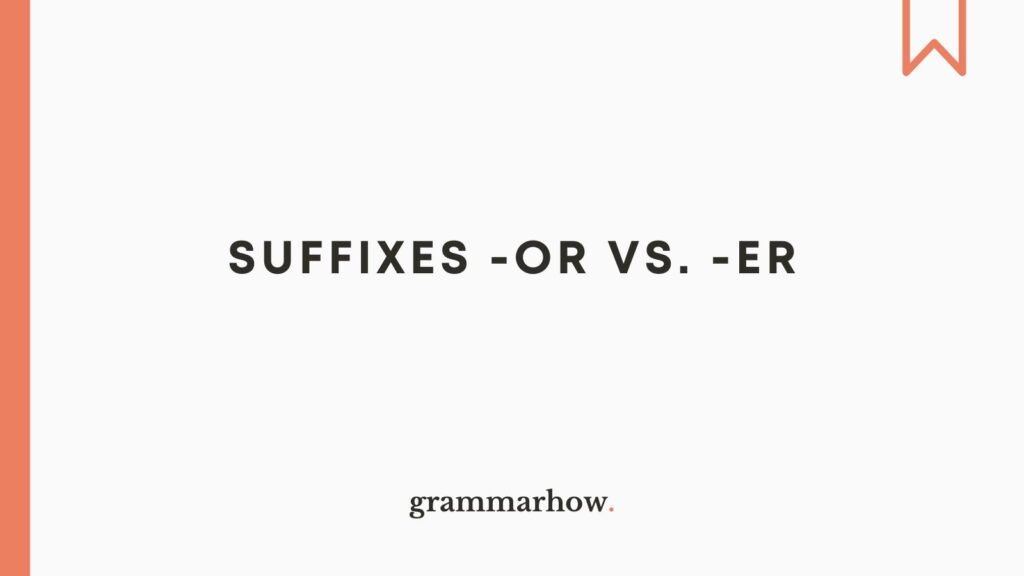There is a difference between ending verbs with “-or” and “-er” to create an agent noun. But do you know what that difference is?
Luckily, this article will explain why there are two different suffixes for the same purpose.
Suffixes -or vs. -er
You should end a word with “-or” if it is of Latin origin. It is rare, though there are examples such as “meditate” and “meditator.” You should almost always end a verb with “-er” to turn it into an agent noun to follow English rules. For example, “drive” into “driver.”
Here are two examples showing you how the “-or” ending might appear:
- Have you spoken to the actor lately? They might be able to help you.
- You should let your tutor know that you can’t make it to your lesson this week.
And here are two examples showing you more about the “-er” suffix:
- What are you going to do about the cooker, though? It hasn’t worked for ages!
- I’m a reader, and I’ve never found a book that I didn’t love.
Are you looking for a tip to help? Remember this simple tip when you’re next stuck:
If you can change a word to have “-ion” at the end of it, then it needs the “-or” ending.
- Correct: Actor / Action
- Correct: Meditator / Meditation
- Incorrect: Driver / Drivion
- Incorrect: Timer / Timion
Otherwise, you must always use the “-er” ending.
In the rest of the article, you can learn more about when to use each suffix. We’ll also show you some common words ending in “-er” and “or.”
When to Use -er
You’ll find that “-er” is the most common suffix for agent nouns in English. After all, you will almost always add “-er” at the end of a verb to create a noun.
Check out some examples to show you when it appears:
- I’m not a runner, but I can move fast! Why don’t you watch what I can do?
- I’ll still be the keeper for this case. Let me know if I need to do anything else, though.
There isn’t much more to say about “-er” suffix nouns. Most of it comes down to learning which words end with an “-er” and practicing them until you nail them.
If in doubt, you should generally use the “-er” ending. It’s much more likely to be correct than the “-or” ending.
So, here is a selection of ten common words you might find with the “-er” suffix:
- Reader
- Cooker
- Driver
- Computer
- Runner
- Toaster
- Swimmer
- Looker
- Keeper
- Trumpeter
When to Use -or
You might not come across “-or” all that often. It appears at the end of Latin words.
Some Latin words are still present in modern-day English, and you need to learn them to understand when “-or” makes sense.
Here are some examples to help you:
- I’m the negotiator, and I’m here to figure out what we need to do next.
- So, why is the janitor not cleaning the floors as we speak?
Generally, one of the easiest ways to know whether you’re dealing with a Latin word is to add an “-ion” to the end of the root word.
For example, you could turn “negotiate” into “negotiation.” Therefore, “negotiate” would also have an “-or” ending.
The ten most common uses of “-or” at the end of a noun are:
- Actor
- Bailor
- Janitor
- Tutor
- Meditator
- Author
- Donor
- Realtor
- Sculptor
- Negotiator

